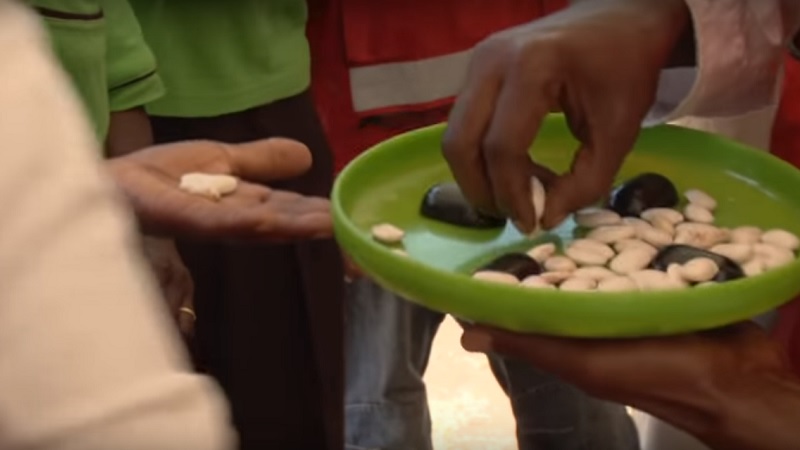A self-described “maths geek from Argentina”, Pablo Suarez spent his early career explaining complexity.
When it came to teaching illiterate farmers in Ethiopia about index-based microinsurance, however, he realised conventional methods were not getting through.
On his second trip, he improvised a way for the farmers to act out a basic insurance scenario. They traded stones as money and rolled dice to represent risks like a child catching malaria.
Now associate director at Red Cross/Red Crescent Climate Centre, Suarez – working with his wife Janot – has developed a whole suite of games.
This approach has become central to the aid agency’s work preparing communities for the impacts of climate change.
Interview: UN weather agency pivots to developing world in warmer era
Maarten van Aalst, director of the climate centre, explained the benefits at an event hosted by the Overseas Development Institute in London.
“We’ve gone round world giving power point [presentations]… usually they glaze over,” he said. “Here they have to make decisions… when you change sides of the die people can see how the odds are changing and start factoring that into their decisions.”
Climate change is a complex phenomenon, increasing risks for farming and fishing communities in ways that are not always easy to anticipate. People do not experience a steady increase in temperature, they experience a drought or failed harvest.
Insurance is seen as an important way to protect those on the front line. The G7 group of major economies, for example, has pledged to expand coverage to 400 million vulnerable people in developing countries.
To get the benefit, those people need to understand and trust in the system.
Climate playbook
Here are a few of the games Red Cross/Red Crescent has developed.
Before the storm: A decision-making card game designed to introduce weather forecasts and possible actions to take against natural disasters through different roles (60 minutes, 4-6 people, facilitator skill level 3)
Invest in the future: Storytelling card game to prepare a district for climate changes (60-90 min, 3-5 people, no facilitator needed)
Farming juggle: Players keep balls in the air, representing unexpected problems and decision-making under stress (20 min, 8-50 people facilitator skill level 1)
Adaptation labyrinth: Teams direct one member to navigate obstacles in a paper maze (60 min, 1230 people, facilitator skill level 3)
A paper Suarez co-authored on some early initiatives, published in the journal Global Environmental Change in 2010, showed modest results.
One lesson was disrupted, ironically, by heavy rainfall on the tin roof of the classroom drowning out discussion. A couple of groups had such a favourable run of the dice they did not experience a “drought” and insurance payout – meant to be a key learning point.
Role-playing games “may be an important tool” but did not necessarily outperform conventional training methods, the report concluded.
Analysis: Is development the best kind of climate adaptation?
A more recent study, subject to peer review, makes a stronger case for the technique.
It crunches the data from 500 people worldwide playing the game “Paying for Predictions”. The aim is to get disaster managers and communities at risk to think about how they can act on early warning systems.
There was “very compelling evidence” people moved closer to the right choices on how much to invest in forecasts after playing, says Suarez.
“Creating a playful platform was enabling people to understand the complexity of the system.”
If the odds are rooted in maths and science, the playful element owes a debt to jazz and theatre.
Paul Jackson, co-founder of the Applied Improvisation Network, has a background in comedy production.
Nowadays, he injects that freewheeling mindset into real life situations, working with (among others) Red Cross/Red Crescent and Braced, a climate resilience programme funded by the UK’s Department for International Development. His Braced colleagues ran side events at last December’s UN climate talks in Paris.
That responsiveness and teamwork can help villagers hit by natural disasters. But asked who could most benefit from improv, Jackson’s answer could apply to Exxon Mobil or Peabody – incumbents failing to keep pace with global trends.
“So many organisations and entire industries are being disrupted because other people are being more flexible, innovative and adaptive than they are,” he says. “They are going to be left behind if they don’t learn some of the skills.”
